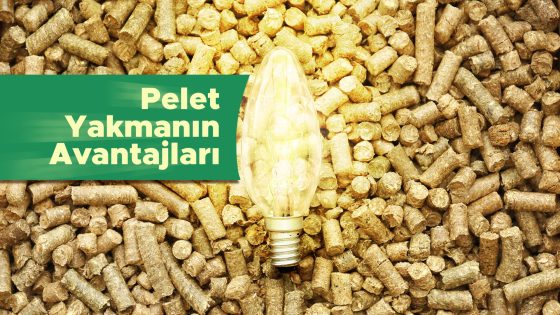
Advantages of Pellet Combustion: An Eco-Friendly and Economic Energy Option
The limited availability of energy sources, environmental pollution, and fluctuations in energy costs are leading people towards renewable and sustainable energy options. In this context, the importance of pellet combustion, as a substitute for wood and plant materials, is increasingly gaining significance. In this article, I will focus on the advantages of pellet combustion and explain why it is an eco-friendly and economic energy option.
Pellets are Produced from Sustainable Resources
Pellets are energy carriers obtained from sustainable biomass sources. They are produced using renewable resources such as wood and plant waste. This helps prevent the depletion of natural resources and contributes to the conservation of forests and the maintenance of biodiversity. Pellets offer an environmentally sustainable energy option by promoting the recycling of waste materials.
Low Carbon Emission and Clean Combustion with Pellets
Pellets are obtained from the processing and compression of wood and plant waste. The pellets produced during this process turn into a higher density fuel form. During the combustion of pellets, low carbon emissions occur, which helps reduce greenhouse gas emissions. Burning pellets instead of wood and plant materials improves air quality and reduces environmental pollution. Additionally, the clean combustion of pellets provides a high-quality and effective heating or energy source.
Energy Efficiency of Pellets and Longer Burn Time
Due to their low moisture content and high density, pellets provide high energy efficiency. This means that pellets can produce more energy with a smaller amount of fuel. While the burn times of wood and plant materials can be relatively short, pellets have a longer burn time. This leads to lower fuel consumption and helps reduce energy costs.
Easy Storage and Transportation
The well-shaped and standardized sizes of pellets facilitate storage and transportation processes. Pellets have a compact structure and take up less space. This reduces storage area issues in homes or commercial establishments. Moreover, transporting pellets is also easy, as their standard sizes lower transportation costs and provide logistical advantages.
Better Control Over Energy Costs and Less Volatility
Burning Pelwod Pellets provides better control over energy costs. Pellets can be produced and sourced locally, which reduces dependency on energy imports. Regional pellet production allows energy sources to contribute to the local economy. Additionally, instead of being affected by price fluctuations of fossil fuels, the price of pellets is more stable. This leads to more predictable energy costs. The advantages of pellet combustion create an eco-friendly and economic energy option. Pellets obtained from sustainable sources provide low carbon emissions and clean combustion. They also offer high energy efficiency, ease of storage and transportation, and better control over energy costs. Burning pellets instead of wood and plant materials helps reduce environmental pollution while lowering energy costs. Therefore, pellets are an important part of an eco-friendly and sustainable future in the energy sector.
